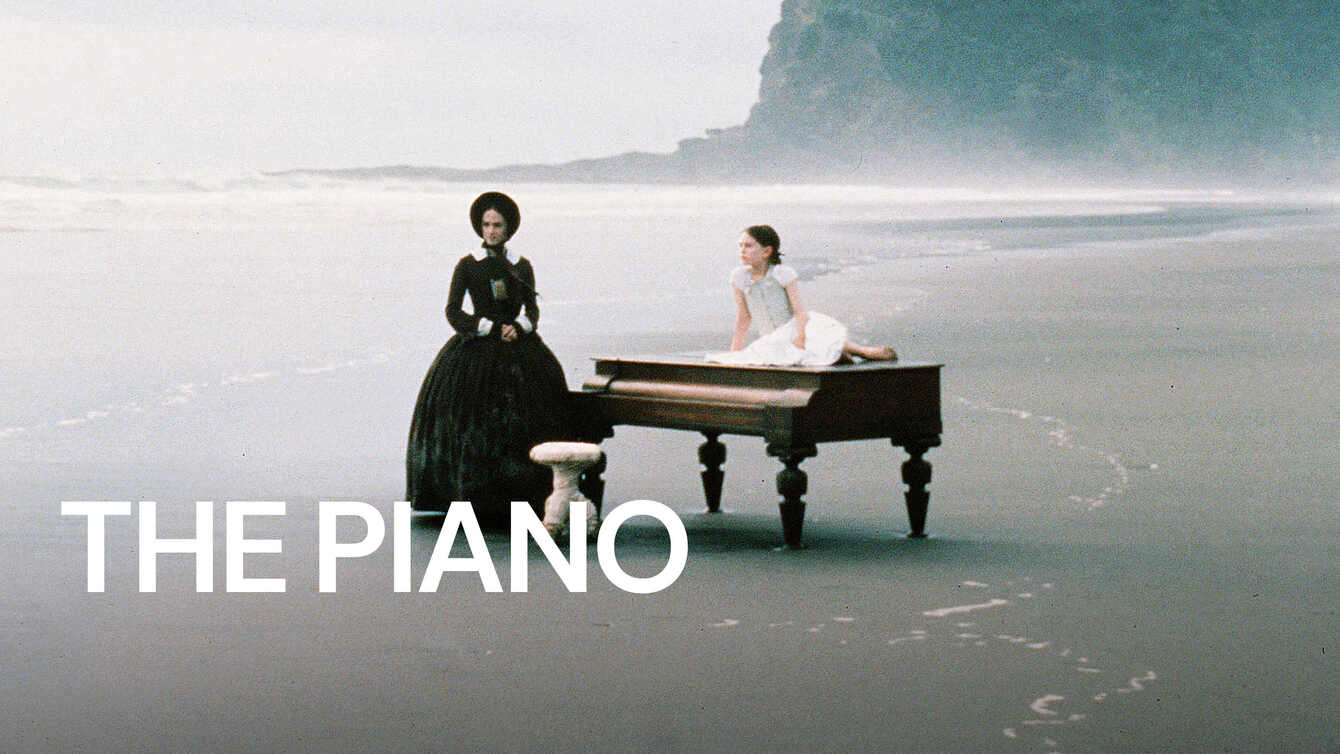
The Piano is a critically acclaimed movie that captivated audiences when it was released in 1993. Directed by Jane Campion, this New Zealand drama film tells the story of Ada McGrath, a mute pianist, who travels with her daughter Flora to New Zealand for an arranged marriage. The film garnered widespread acclaim for its compelling storytelling, stunning cinematography, and powerful performances.
In this article, we will delve into 36 fascinating facts about The Piano that will not only provide insight into the making of the film but also give you a deeper appreciation for its artistic brilliance. So, sit back, relax, and get ready to immerse yourself in the world of The Piano.
Key Takeaways:
- The Piano, released in 1993, is a captivating love story set in 19th century New Zealand, featuring powerful performances and a haunting soundtrack that continues to resonate with audiences today.
- Through its exploration of love, desire, and societal constraints, The Piano challenges traditional norms and showcases the transformative power of music, making it a timeless cinematic masterpiece.
The Piano was released in 1993
The film, directed by Jane Campion, made its debut in 1993 and quickly garnered critical acclaim.
It stars Holly Hunter as Ada McGrath
Holly Hunter delivered a remarkable performance as Ada McGrath, a mute pianist, for which she won the Academy Award for Best Actress.
The movie is set in the mid-19th century
The Piano is set in the mid-19th century in New Zealand, providing a unique and immersive backdrop for the storyline.
Ada’s daughter Flora is played by Anna Paquin
Anna Paquin, at the age of only 11, won the Academy Award for Best Supporting Actress for her portrayal of Flora, Ada’s daughter.
The soundtrack is composed by Michael Nyman
Renowned composer Michael Nyman composed the haunting and beautiful soundtrack, which played a vital role in the film’s success.
It received numerous accolades
The Piano received widespread acclaim, winning the Palme d’Or at the 1993 Cannes Film Festival and garnering multiple Oscar nominations.
The movie explores themes of love and desire
The Piano delves deep into themes of love, desire, passion, and the complexities of human emotions, creating an intense and captivating narrative.
The film showcases stunning scenery
The picturesque landscapes of New Zealand serve as the breathtaking backdrop to the movie, adding another layer of beauty to the storytelling.
Ada communicates through her piano
Being mute, Ada channels her thoughts and emotions through her piano, using it as her primary means of expression throughout the film.
The Piano won three Academy Awards
Alongside Holly Hunter and Anna Paquin’s wins, The Piano also took home the Academy Award for Best Original Screenplay.
Ada’s piano becomes a central symbol in the film
The piano symbolizes Ada’s voice and freedom, becoming a pivotal element in her journey and the relationships she forms.
It explores unconventional love triangles
The Piano challenges traditional notions of love and presents complex relationships between Ada, her husband, and another man.
The movie features a strong feminist narrative
Jane Campion’s film highlights themes of female resilience, empowerment, and agency, breaking societal norms prevalent in the era it is set.
The Piano is known for its passionate and intimate scenes
The film features intense and intimate scenes that add to the emotional depth of the storyline, resonating with audiences on a profound level.
Harvey Keitel portrays the role of George Baines
Harvey Keitel delivers a powerful performance as George Baines, a romantic and complex character who forms a relationship with Ada.
The movie explores the power dynamics between men and women
The Piano delves into the power dynamics between men and women, challenging traditional gender roles and expectations.
It received critical acclaim for its screenplay
Ada’s character development and the intricately woven screenplay earned The Piano widespread critical praise and recognition.
Holly Hunter learned to play the piano for her role
To convincingly portray the role of Ada McGrath, Holly Hunter learned to play the piano and performed many of the pieces herself.
The movie was lauded for its cinematography
The visually stunning cinematography of The Piano received high praise for its ability to capture the essence and beauty of New Zealand.
It explores the exploration of female sexuality
The Piano fearlessly delves into the exploration of female sexuality, representing it in a raw and unapologetic manner.
The film is a poignant love story
At its core, The Piano is a captivating and poignant love story, filled with passion, longing, and sacrifice.
It challenges societal norms and expectations
The movie challenges societal norms of the era and sheds light on the limitations and constraints placed upon women in that time.
The Piano is rich in symbolism
From the piano itself to the dark forest, the film is layered with various symbolic elements that add depth to the narrative.
It explores the complexities of mother-daughter relationships
The Piano delves into the complexities of the relationship between Ada and her daughter Flora, highlighting themes of love, devotion, and sacrifice.
The film showcases the struggle for personal and artistic freedom
The Piano portrays the relentless pursuit of personal and artistic freedom, even in the face of societal constraints and expectations.
It has a unique blend of drama and romance
The combination of gripping drama and intricate romance makes The Piano a compelling and emotionally charged cinematic experience.
The movie generated controversy upon its release
Due to its explicit content and unconventional storyline, The Piano sparked debate and controversy among audiences and critics alike.
It has a distinct visual style
Jane Campion’s distinct visual style, characterized by rich colors and striking compositions, is evident throughout the film.
The Piano features a memorable and emotionally resonant ending
The film’s ending leaves a lasting impact on viewers, reflecting the profound emotional journey Ada goes through.
It showcases the power of music as a form of expression
The Piano highlights the transformative power of music, demonstrating how it can serve as a means of communication and liberation.
The movie explores the constraints of societal expectations
The Piano challenges the constraints and limitations imposed by societal expectations, urging viewers to question and defy such norms.
It exemplifies the art of storytelling through visuals
The film’s masterful use of visuals and cinematography effectively tells a powerful and emotionally charged story.
The Piano is considered a classic in contemporary cinema
The film has achieved classic status in contemporary cinema, resonating with audiences and critics even years after its release.
It was initially met with mixed reactions
While The Piano eventually gained accolades and admiration, it was initially met with mixed reactions due to its unconventional narrative.
The movie explores themes of forbidden love and desire
Forbidden love and desire propel the storyline of The Piano, adding layers of complexity to the relationships portrayed in the film.
The Piano is a cinematic masterpiece
With its captivating performances, stunning visuals, and powerful storytelling, The Piano stands as a cinematic masterpiece that continues to captivate audiences to this day.
Conclusion
The Piano is an iconic movie that has captivated audiences since its release in 1993. With its powerful performances, stunning cinematography, and gripping storyline, it continues to be a favorite among movie lovers. From its remarkable soundtrack to its exploration of love and desire, The Piano is a must-watch for any film enthusiast.
Through this article, we’ve delved into 36 fascinating facts about The Piano, shedding light on the making of the film, its awards and accolades, and interesting trivia surrounding its production. From Holly Hunter’s incredible performance as Ada McGrath to the unique collaboration between director Jane Campion and composer Michael Nyman, every aspect of this movie is worth exploring.
Whether you’re a longtime fan or have yet to experience the beauty of The Piano, we hope this article has deepened your appreciation for this cinematic masterpiece.
FAQs
Q: Who directed The Piano?
A: The Piano was directed by Jane Campion.
Q: When was The Piano released?
A: The movie was released in 1993.
Q: Who starred in The Piano?
A: The film stars Holly Hunter, Harvey Keitel, Sam Neill, and Anna Paquin.
Q: Did The Piano win any awards?
A: Yes, The Piano won several awards, including three Academy Awards for Best Actress, Best Supporting Actress, and Best Original Screenplay.
Q: What is the story of The Piano?
A: The Piano tells the story of Ada, a mute woman who travels to New Zealand with her daughter and her beloved piano. She enters into a complex relationship with a local settler named George Baines, leading to a series of intense and emotional events.
Q: Who composed the soundtrack for The Piano?
A: The soundtrack for The Piano was composed by Michael Nyman.
Q: Is The Piano based on a true story?
A: No, The Piano is not based on a true story. It is a fictional narrative created by writer and director Jane Campion.
Q: Where was The Piano filmed?
A: The majority of the film was shot in New Zealand.
Q: What language is spoken in The Piano?
A: The characters in The Piano primarily speak English.
Q: What is the significance of the piano in the movie?
A: The piano serves as a metaphor for Ada’s voice and her means of expression, as she is unable to speak. It becomes a central point of conflict and desire throughout the film.
Dive deeper into the world of cinema by exploring the visionary mind behind The Piano, Jane Campion, whose unique storytelling style has captivated audiences worldwide. Uncover the essence of drama and how it shapes our perception of the human experience through powerful narratives and emotional performances. For those seeking a thrilling blend of action and romance, embark on a journey with True Romance, a film that defies conventions and leaves you on the edge of your seat.
Was this page helpful?
Our commitment to delivering trustworthy and engaging content is at the heart of what we do. Each fact on our site is contributed by real users like you, bringing a wealth of diverse insights and information. To ensure the highest standards of accuracy and reliability, our dedicated editors meticulously review each submission. This process guarantees that the facts we share are not only fascinating but also credible. Trust in our commitment to quality and authenticity as you explore and learn with us.


